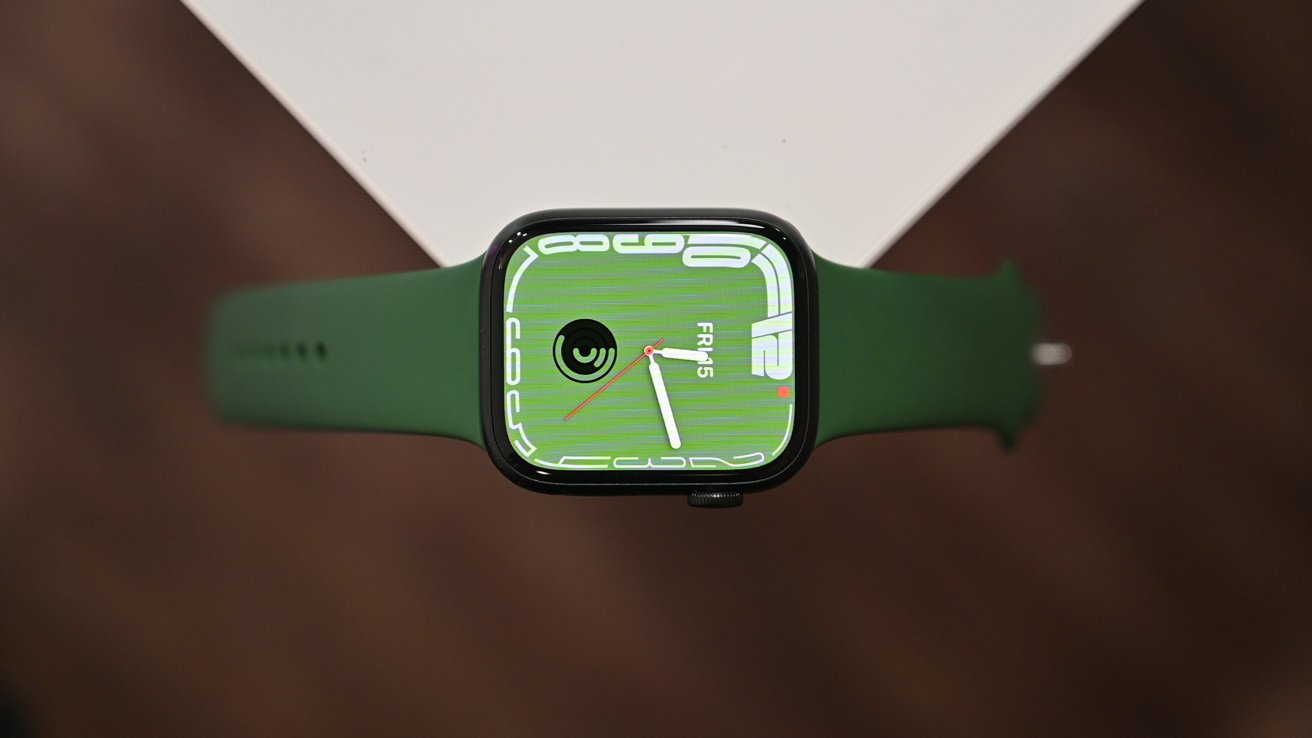Startup gets FDA clearance to use Apple Watch to monitor Parkinson's symptoms
Brain data firm Rune Labs has received Food and Drug Administration clearance to start using the Apple Watch to monitor symptoms in patients with Parkinson's disease.

Apple Watch Series 7
Rune Labs is a San Francisco-based startup that works in brain data and neuro-based therapies. Its software platform uses motion sensors in the Apple Watch to keep tabs on symptoms such as tremors in Parkinson's patients, Reuters has reported.
Brian Pepin, CEO of Rune Labs, says that the company's platform will use the Apple Watch data in combination with information from other sources, such as a Medtronic implant to measure brain signals.
The goal is to used the combined data to inform a doctor's decisions on whether and how to tailor a patient's treatment. In the medical field, that's an approach dubbed precision medicine.
When it comes to current Parkinson's treatments, doctors will typically need to gather data about a patient's movements by observing them during a short clinical visit. Since Parkinson's symptoms can vary widely over time, that's not ideal.
"When you think about the process of getting someone to their optimal therapy or combination of drugs or devices, or even whether or not a patient might be a good fit for certain clinical trial, it's a very hard decision to make when you only have a little context," Pepin said.
The Apple Watch, along with other tools that Rune Labs is using, will give doctors a much more detailed picture of a patient's symptoms, Pepin added.
Apple has internally explored how to use the Apple Watch and iPhone to monitor Parkinson's symptoms in the past. It has also filed for a patent application for more advanced technology to treat or diagnose the disease.
When Rune Labs contacted Apple about collaborating, the company was quick to jump on the opportunity. "It took about eight minutes for the team lead to get back to me and say, 'Hey, perfect, let's explore this,'" Pepin said.
The Rune Labs FDA clearance is the first significant use of Apple's software tools for measuring movement disorders since it released the features in 2018.
Read on AppleInsider

Apple Watch Series 7
Rune Labs is a San Francisco-based startup that works in brain data and neuro-based therapies. Its software platform uses motion sensors in the Apple Watch to keep tabs on symptoms such as tremors in Parkinson's patients, Reuters has reported.
Brian Pepin, CEO of Rune Labs, says that the company's platform will use the Apple Watch data in combination with information from other sources, such as a Medtronic implant to measure brain signals.
The goal is to used the combined data to inform a doctor's decisions on whether and how to tailor a patient's treatment. In the medical field, that's an approach dubbed precision medicine.
When it comes to current Parkinson's treatments, doctors will typically need to gather data about a patient's movements by observing them during a short clinical visit. Since Parkinson's symptoms can vary widely over time, that's not ideal.
"When you think about the process of getting someone to their optimal therapy or combination of drugs or devices, or even whether or not a patient might be a good fit for certain clinical trial, it's a very hard decision to make when you only have a little context," Pepin said.
The Apple Watch, along with other tools that Rune Labs is using, will give doctors a much more detailed picture of a patient's symptoms, Pepin added.
Apple has internally explored how to use the Apple Watch and iPhone to monitor Parkinson's symptoms in the past. It has also filed for a patent application for more advanced technology to treat or diagnose the disease.
When Rune Labs contacted Apple about collaborating, the company was quick to jump on the opportunity. "It took about eight minutes for the team lead to get back to me and say, 'Hey, perfect, let's explore this,'" Pepin said.
The Rune Labs FDA clearance is the first significant use of Apple's software tools for measuring movement disorders since it released the features in 2018.
Read on AppleInsider
